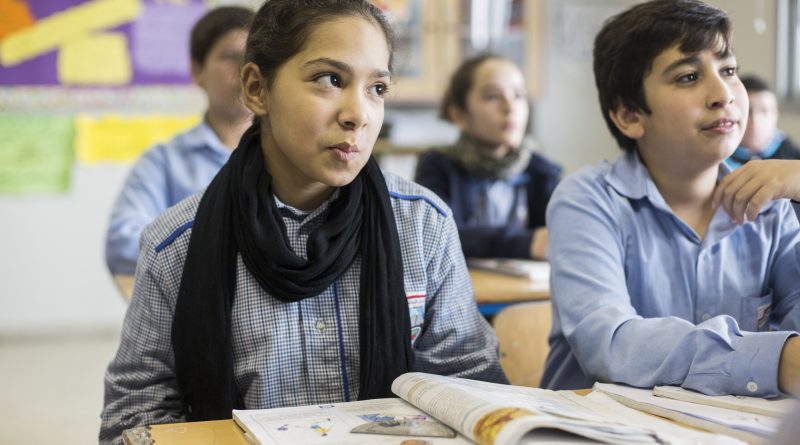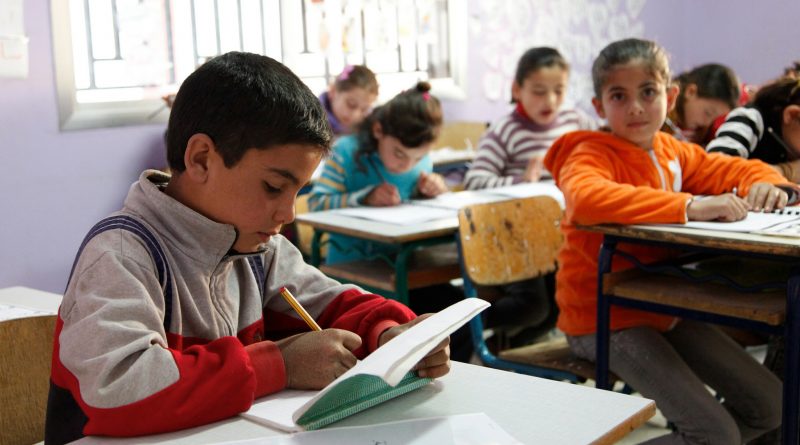On 16 January 2014 a reading event was organised for DFID education advisors. It was facilitated by Dr David Hollow from Jigsaw Consult. Education and Information and Communications Technology (ICT) was the focus of the day. ICT may improve education in many ways. It may contribute to universal access to education, equity in education, the delivery of quality learning and teaching, teachers’ professional development and more efficient education management, governance and administration.
A summary report of the day is now available to download.
The main issues discussed were as follows:
- There is need for long term investment in building the evidence base for ICT in education, with monitoring and evaluation as an integrated component within new initiatives.
- In the most marginalised contexts, ICT is normally more effective at secondary rather than primary levels.
- A detailed assessment of Total Cost of Ownership (TCO) should be demanded from the outset with any new initiative.
- With any ICT for education programme, work to gain buy-in from Ministries of Education and integrate with the pre-existing demands of the curriculum.
- Reliable power and connectivity for devices will remain a big challenge.
- A donor priority should be working to build capacity in partner governments for sensible, strategic decision making in ICT procurements.
- Aim for incremental improvements through technology and be suspicious of promises of transformation from private sector providers.
- Alongside direct classroom use, consider the potential of ICT as a tool for management, teacher training, learning outside of school.
Key papers on this topic include:
-
Severin et al. (2011), Evaluation of the “Una Laptop Por Niño” Program in Peru: Results and Perspectives, New York: Inter-American Development Bank.
This paper was one of the first to provide an independent comprehensive evaluation of One Laptop Per Child – it is highly critical of the initiative. - Walsh C, Power, T et al. (2013), The ‘Trainer in Your Pocket’: Mobile Phones Within a Continuing Professional Development Program in Bangladesh, Milton Keynes: Professional Development in Education Vol 39 (2) pp. 186-200
This is a summary of how the DFID funded English in Action program in Bangladesh uses technology as part of a school based professional development program. -
Piper, B and Kwayumba, D. (2013) Does PRIMR’s ICT Strategies Improve Learning Outcomes? Kenya, United States Agency for International Development.
This is a summary of the impact after 6 months of a USAID funded program to teach early grade reading in Kenya. The program compares the impact on literacy scores when the tablet user changes. -
Hosman, L. (2010), Policies, Partnerships, and Pragmatism: Lessons from an ICT-in-Education Project in Rural Uganda, Chicago: Illinois Institute of Technology
This article is informed by a case study of a multi-partnered ICT-in-education project in rural Uganda, and explores policy, partnerships and pragmatism in this context. -
Manyika, J et al. (2013), Lions Go Digital: The Internet’s transformative potential in Africa: McKinsey Global Institue. (3 pages – 40-43 of the PDF)
This is a quick glance at the private sector perspective. The private sector are a major player in educational technology.
After the event, Rosalind Gater, an Entry Scheme Education Advisor for DFID, wrote a blog titled, ‘All for one and one for all: a call to unite to promote research in educational technology’. It states that research to prove a positive relationship between edtech initiatives and improved learning in the developing world is limited, inconsistent and inconclusive. She states that research in this area must be prioritised with funds set aside to do it properly.
In 2013, HEART was asked to produce a report focusing on the use of ICTs in education programme delivery, particularly to deliver learning. The report focused on primary and secondary education in low income countries, particularly in sub-Saharan Africa and South Asia. It synthesised evidence from recent, ongoing and pipeline activities that utilise Information and Communication Technologies (ICTs) in education programme delivery, in particular to deliver learning. The report included teacher training initiatives and the use of ICTs for teaching and learning. It included DFID-funded projects and wider sources. The technologies and strategies used by projects focused on in the report for teacher training and education delivery include: laptop distribution projects; the use of open learning resources; the use of mobile phones; media players and e-readers.
UNESCO believes that access, inclusion and quality are among the main challenges that ICTs can address in education. The Organization’s Intersectoral Platform for ICT in education focuses on these issues through the joint work of three of its sectors: Communication & Information, Education and Science.


